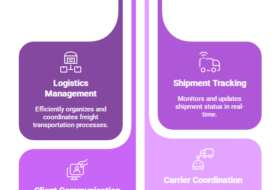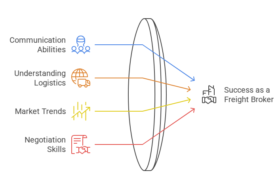Freight Brokerage Business : Workday
Connect Shippers with Motor Carriers
A freight broker is basically a shipping middleman: an individual or company that arranges shipping services between another individual or company and an authorized carrier. The broker is not the actual shipper or carrier, just the liaison between the two. Brokers determine the shipping needs of a company and connect that company with a carrier who can ship the company’s goods; this helps both shippers and carriers. Brokers help shippers find reliable shipping services that they may not be able to find themselves, and in turn, they also help carriers find a variety of goods to ship and, therefore, earn money to ship them.
Keep Records
Freight brokers must keep detailed records in accordance with the Code of Federal Regulations of each and every transaction between shippers and the carriers they connect them to. These records must entail the contact information for both the shipper and the carrier, the bill of lading or the freight bill number, the compensation received, a description of any nonbroker service performed in regards to a shipment and if the broker received any compensation, any freight charges, and the payment to the carrier. Brokers must keep these records for a minimum of three years and allow any shippers and carriers to review these records for their transactions.
Market Services
Brokers also must market their services to both carriers and shippers. Without marketing, both carriers and shippers will have no way of knowing which brokers are in their particular market. Brokers have to make themselves known to both sets of potential customers in order to have any business at all.
This is how a Freight Brokerage Business Owner Spend a Workday.







